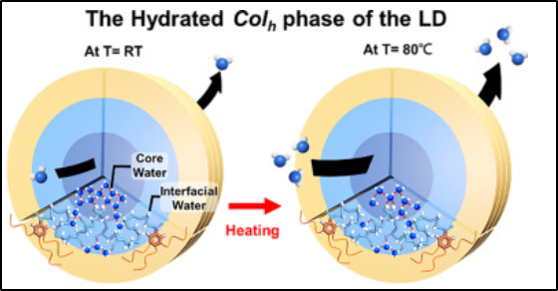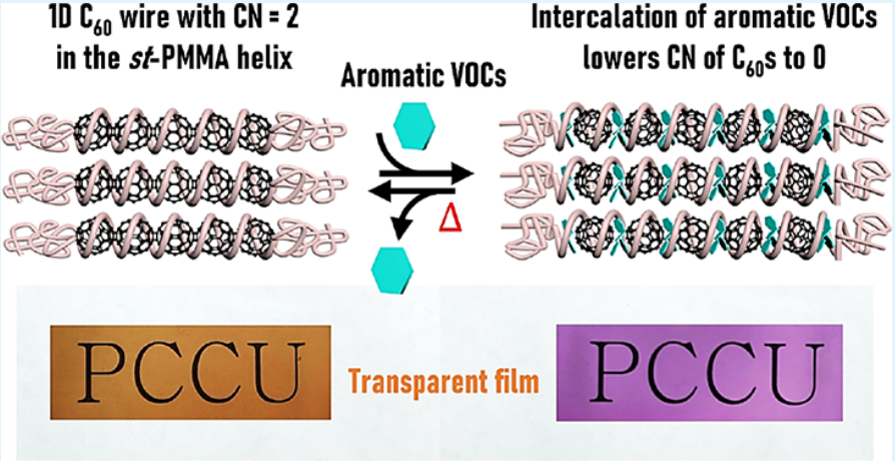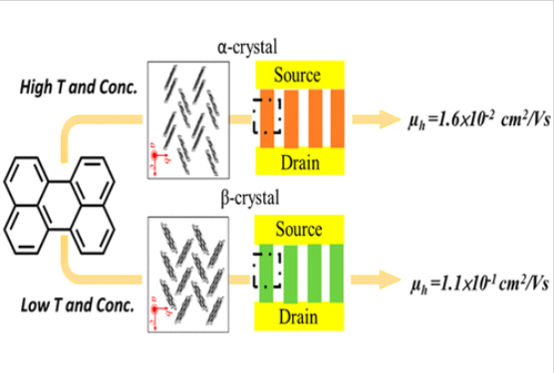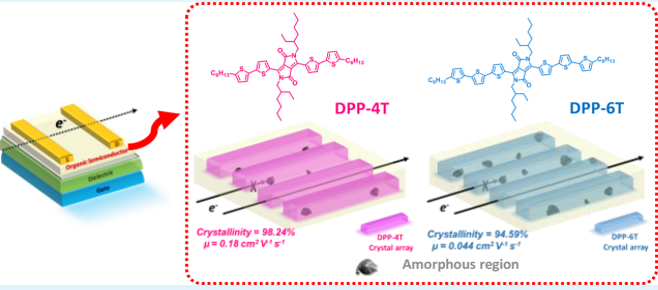Enhancing mechanical properties of wet-spun PEDOT: PSS conductive fibers via molecular weight engineering of PSS
Hung-Chi Lo, Jie-Dong Hu, Che-Min Chou, Chun-Yu Chen, Jhih-Min Lin, Chin-Wen Chen, Chien-Lung Wang, Wei-Tsung Chuang , and Kuan-Yi Wu*

ABSTRACT
Highly conductive poly(3,4-ethylenedioxythiophene):poly(styrenesulfonate) (PEDOT:PSS) fibers with excellent electrical conductivity and stretchability are crucial for advancing wearable fiber-based electronics. However, the tensile strength and stretchability remain constrained by the hierarchical structure of PEDOT:PSS. Notably, the role of PSS molecular weight (Mw) in shaping the processability and mechanical performance of PEDOT:PSS fibers has not been explored yet. Herein, we examine the impact of PSS Mw on the process-structure–property relationship of PEDOT:PSS fibers. PSS with the higher Mw of 500 and 1000 kg mol− 1 were used to produce PEDOT:PSS500 and PEDOT:PSS1000, compared to Clevios PH1000. Structural analysis shows that all the PEDOT:PSS solutions have a comparable PEDOT-to-PSS weight ratio. Increasing the Mw of PSS enhances solution viscosity, thereby improving fiber spinnability. The tensile strength is also improved in high Mw PEDOT:PSS fibers since the elongation at break (Ebreak) increases from 11.8% in PH1000 to 39.3% in PEDOT:PSS1000 at RH = 60%. After the DMSO/glycerol-immersed treatment, the PEDOT:PSS1000 fibers deliver a high conductivity of 110 S⋅cm− 1.Besides, the PEDOT:PSS1000 fiber can exhibit high Ebreak = 48.8% at RH = 80% and still perform Ebreak = 13.7% even at low RH = 20%. These findings highlight the potential of tailoring PSS Mw to enhance the performance of PEDOT:PSS fibers for wearable electronics.
KEYWORDS: PEDOT:PSS fiber, stretchability, fiber spinning, wearable electronics.






